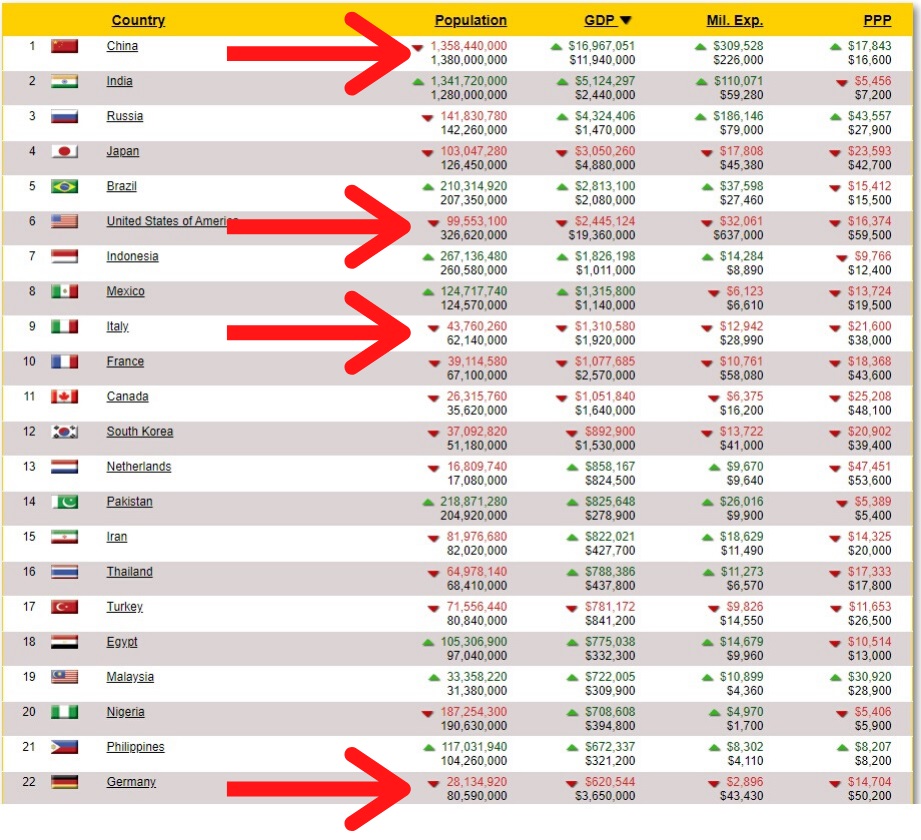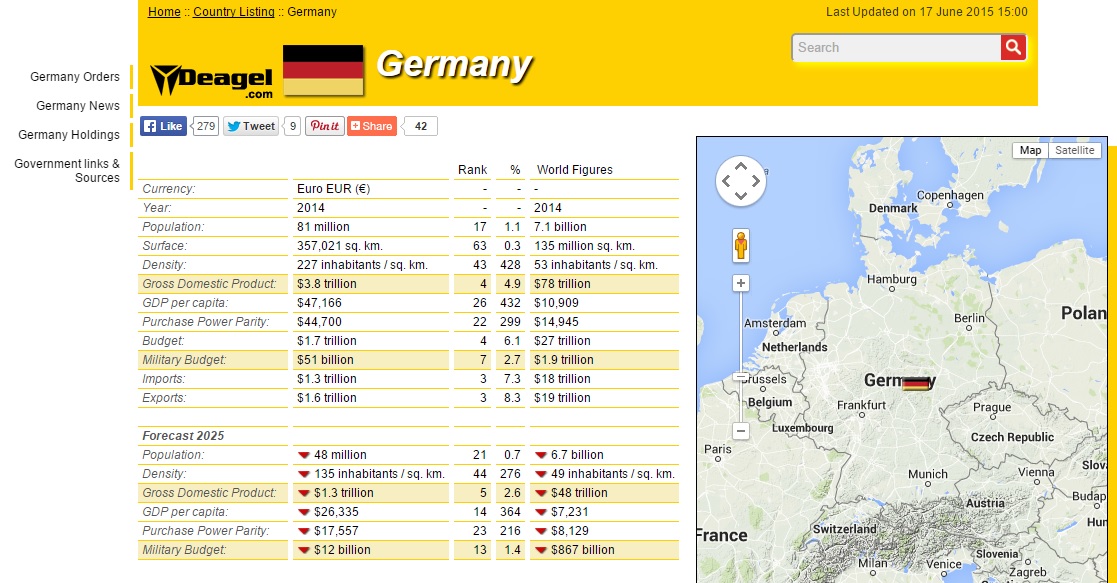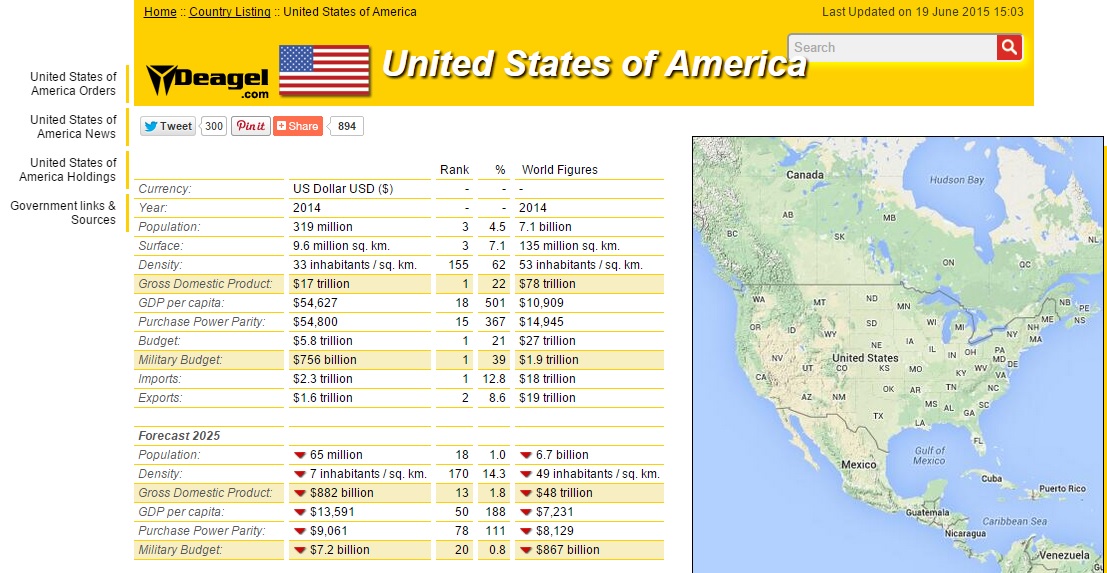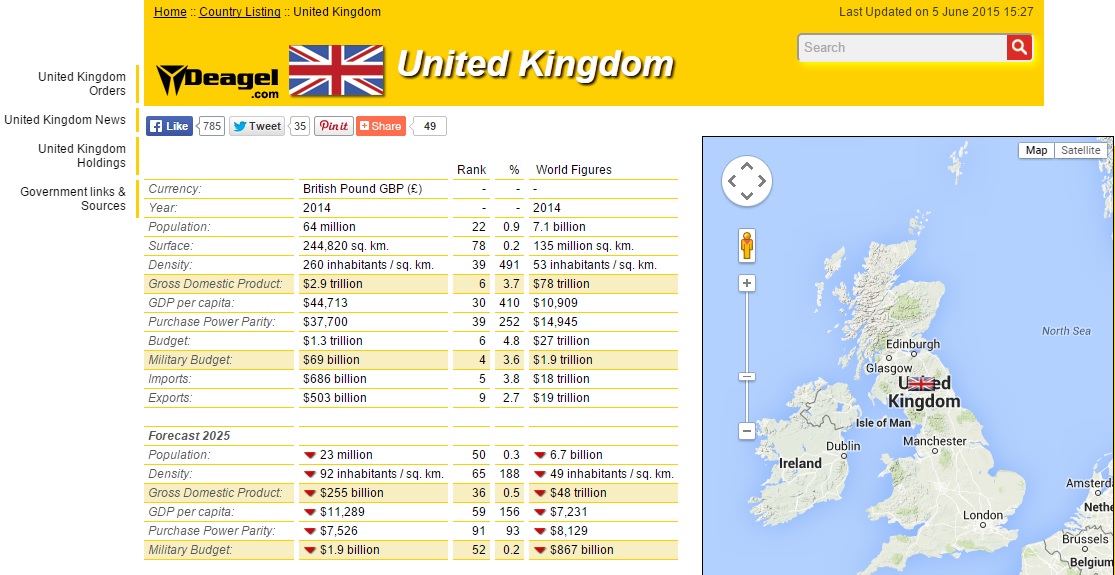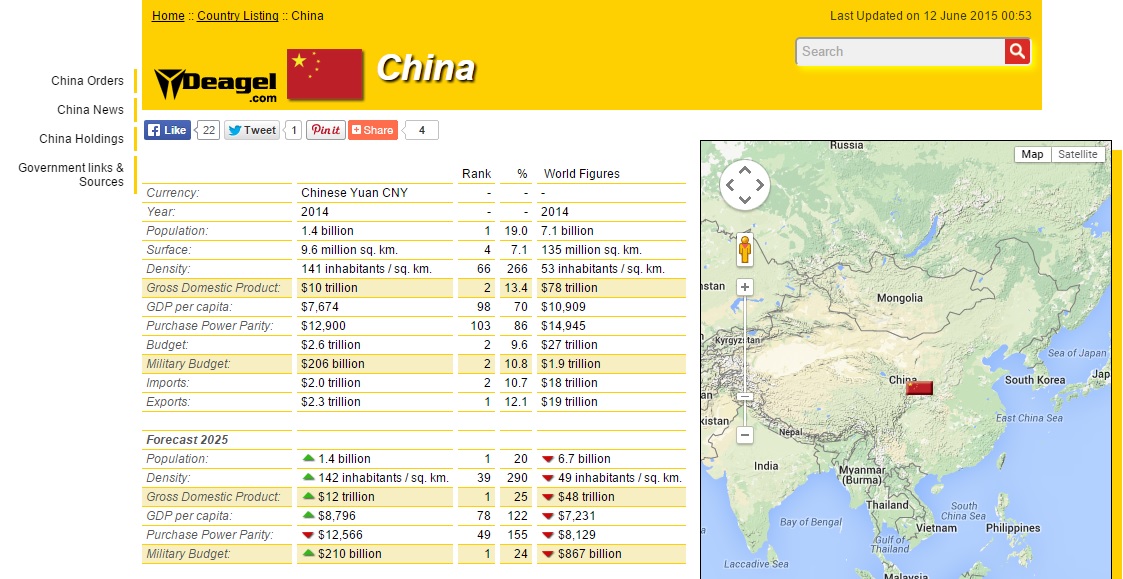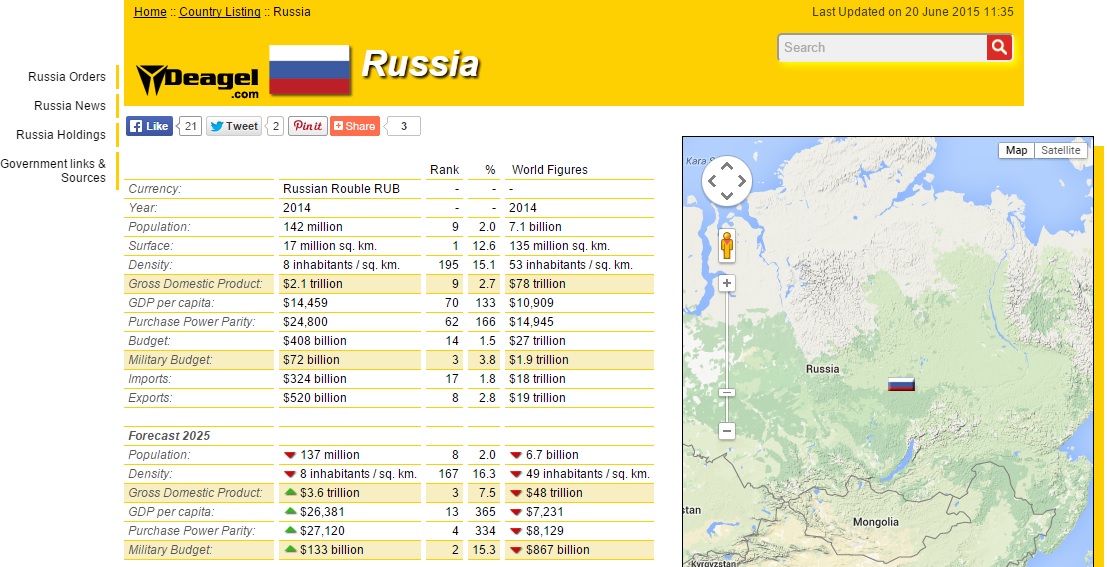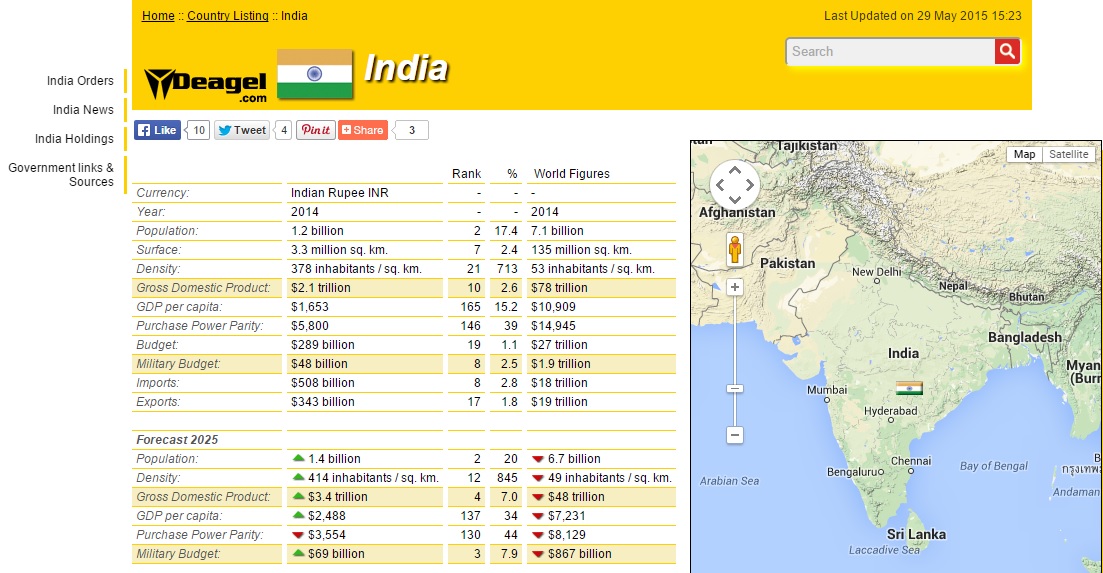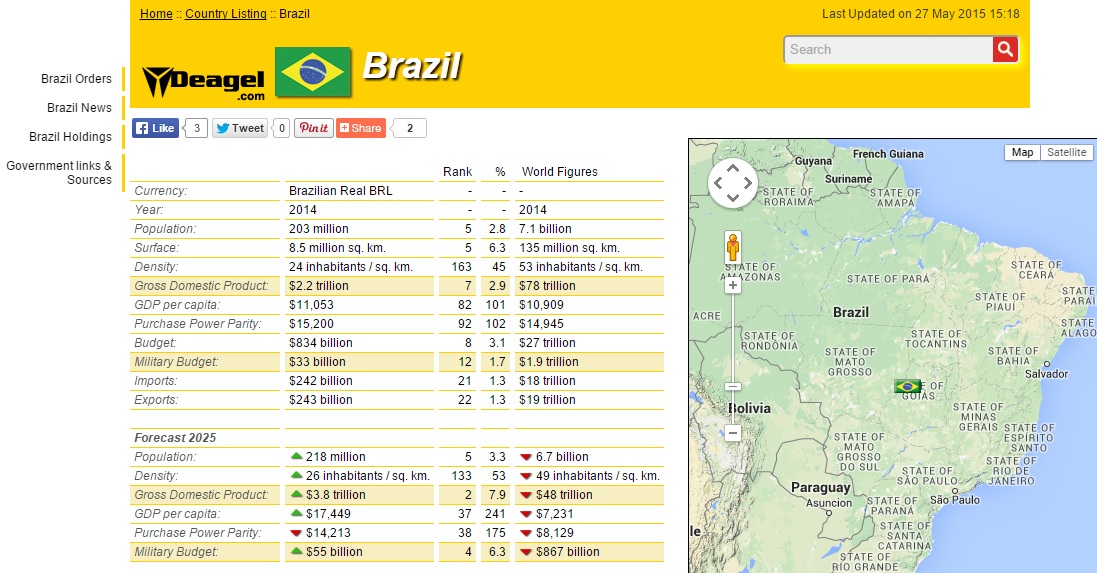
By 2025, populations around the world were forecast to decrease by a staggering 800 million people or more, according to Deagel publications.
Deagel.com: This inconspicuous website is largely unknown, even on social media, and is often assumed to have no official existence at all.
According to its own website, Deagel provides news and information about international military aviation and pioneering technologies. The website has articles dating back to 2003, but little is known about the real operators. Many online researchers have mistakenly mistaken this page for “deagle.com”, which is owned by Edwin Deagle.
In 2016, scientists at the British University of Oxford have also published a report and forecast that a 10 percent loss in the world’s population would go hand in hand with a catastrophic disaster. The numbers were estimated in a scientifically based special report known as global disaster risk.
The report, created by Oxford University’s Global Challenges Foundation and the Global Priorities Project, assessed the greatest threats to human population in the coming years, including a global pandemic, climate change and natural disasters. The team compiled the report, beseeching world governments to prepare.
“There are some things that are on the horizon, things that probably won’t happen in any one year but could happen, which could completely reshape our world and do so in a really devastating and disastrous way. History teaches us that many of these things are more likely than we intuitively think. Many of these risks are changing and growing as technologies change and grow and reshape our world. But there are also things we can do about the risks,” stated Sebastian Farquhar, director at the Global Priorities Project to Associated Press at the time.
Currently, the human population faces multiple high-risk situations, including climate change, the evolving coronavirus pandemic that has seen a virus spread from China at alarming rates across the world, and economic collapse as a result of the CCP’s initial concealment of the Wuhan coronavirus (COVID-19).
Current world figures anticipate millions in population growth lost and a sharp decline in Gross Domestic Product. The world population that currently sits at around 7.4 billion is set to drop to 6.9 billion in just 5 short years in 2025.
Ironically, the nation where the origins of the virus first appeared, China, is set to remain the same in population growth, while nations like Italy, Australia, and the US will see significant drops and potential economic devastation. India and Russia will also fare reasonable stability.
CIA front group DEAGEL predicts large global population declines by 2025
As a front group for the CIA, Deagel predicts that we’re only a few years away from a hellish nightmare.
This highly respected intelligence agency is giving a bleak outlook on the United States for the coming years, including a 78% population decline. In fact, it predicts a similar, catastrophic fate for the United Kingdom, Australia, Germany, Japan, and Denmark, and other allied countries (or see for yourself at http://www.deagel.com/country/forecast.aspx):
The figures are particularly alarming for the USA and Germany, where it is forecast that just under 1/3 of the population will be alive. According to Deagel.com, Italy and France will also be severely affected by a population decline, but here it is assumed that 2/3 of the population will still be alive. China and Russia are forecast to be hardly affected, and for Interestingly, the CIA front group even expects India, Pakistan, Mexico, Indonesia, Malaysia, Philippines to have a population increase.
Global military spending will drop by 90-95%
In terms of military budgets, Russia’s growth will increase from $ 79 billion to $ 186 billion, while the United States will have problems, most likely due to future inflation, with the budget falling from $ 637 billion to $ 32 billion. Similar results are forecast for the United Kingdom: a population decline of 7 million people and a decrease in the military budget from $ 56 billion to only $ 1.4 billion.
For comparison, the following are forecast numbers (screenshots from June 19, 2015) from 2015, which were somewhat more moderate and positive compared to today’s figures, but are almost unchanged for i.e. Germany with a forecast population decline of 48 million people (2/3 of it’s population):
Population decline by how much?
According to these figures, the organization expects a massive population decline in the typical G7 countries, the European Union and others.
If you include all of the different scenarios that could involve this type of population decline: major physical / geographic events, diseases, etc.…. well, okay, maybe this could happen. BUT…
Then take a look at the BRIC countries, i.e. Brazil, Russia, India and China:
If you look at the list of countries, Africa, South America and most of Asia are apparently untouched or are said to have very little decline in their populations (with the exception of Japan!), And most Caribbean countries have no entries for 2025. On the other hand, they have NATO countries all saw significant declines – with the exception of Turkey. Very small declines are predicted for the Middle East, except for Israel, which is expected to experience a BIG decline.
Who is behind DEAGEL.com?
Of course, the question arises whether this information is trustworthy? Who or what is Deagel? Who is behind it? Is it an official institution?
Deagel’s reports, particularly investigations into North Korea, were also made available to the US President for daily information and briefings. In this way, Deagel provides information that is subsequently used by global intelligence agencies and governments.
Although its importance is downplayed heavily, WikiLeaks documents have shown that it was used as official reference material in a Stratfor report (Stratfor is one of the most important military-strategy think tanks-of the U.S.) about the technological capabilities of the People’s Republic of North Korea: https: // wikileaks .org / gifiles / docs / 26 / 2655808_dprk-marko-p-.html
Deagel is a group that gets their hands dirty and plays on both sides of the fence. Please note the publicly accessible list of Deagel partners below.
Here is an incomplete list of well-known Deagel partners and customers, according to its own website:
- NSA – US National Security Agency
- NATO (literally translated: Organization of the North Atlantic Pact) – North Atlantic Defense Alliance
- OECD – Organization for Economic Cooperation and Development
- OSCE – Organization for Security and Cooperation in Europe
- Russian Defense Equipment Procurement Agency
- Stratfor (American geopolitical news platform and publisher / “think tank”)
- World Bank (“World Bank”)
- United Nations
They do business with the Russian defense procurement agency, but are largely an American contractor with ties to the U.S. Navy, the NSA and the CIA, through Stratfor.
Deagel – The association you’ve probably never heard of
The power and influence of this association are simply breathtaking. It’s like the modern edition of Zapata Oil, a CIA front company led by George H.W. Bush, which in turn enabled much of the Air America ‘drugs for guns’ program in Latin America in the 1980s would have.
There is evidence that Deagel is pretty much the same type of organization as Zapata Oil at the time. Deagel initially did arms deals through US Ambassador Chris Stevens in Libya, but had started supplying al-Qaida in Libya and Syria at the time of his murder. Deagel was closely involved in the Benghazi attack in several ways, which will be dealt with in detail in a later article.
Deagel also has close ties to the so-called “Open Source Intelligence” business, which involves gathering information from publicly available sources for intelligence purposes. This means that Deagel and its partners (the connections listed) act as marketing companies for the CIA and sell news information to the highest bidder. Stratfor and Deagel at least distance the CIA from nefarious operations that could be dangerous to the US government, and particularly the CIA.
Sources & references:
- Oxford University Bericht
- http://www.deagel.com/country/forecast.aspx
- https://www.cia.gov/index.html
- https://www.nsa.gov/
- https://www.osce.org/
- https://www.nato.int/
- https://www.forbes.com/consent/?toURL=https://www.forbes.com/sites/stratfor/



